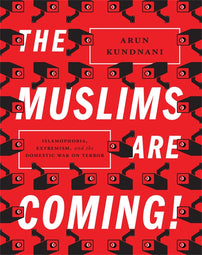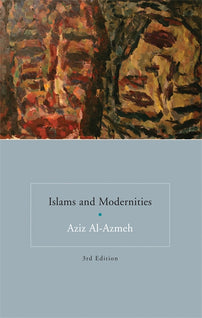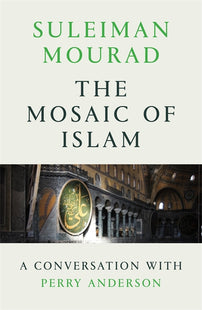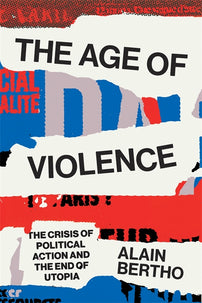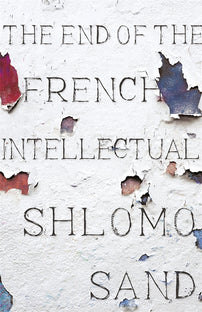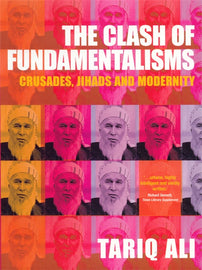There really is a state Islamophobia in France, whether people like the term or not
Jean-François Bayart, professor of political sociology, argues that the denunciation of ‘Islamo-leftism’ rests on a misunderstanding of history and reveals the consolidation of a ‘republican McCarthyism’ at the heart of the state and the media.

In the aftermath of the 2015 attacks, I published a short essay, 'Les Fondamentalistes de l’identité' (Karthala, 2016), in which I expressed my fear of seeing France taken hostage by the complementary enmity between Salafists and secularists. Now we’ve reached that point. The fear, disgust and anger inspired by the murders of Samuel Paty and in Nice have offered a windfall to ideologists who claim a monopoly on indignation and the definition of the Republic. Their denunciation of ‘Islamo-leftism’ betrays a lack of securitas, the peace of mind that the Stoics claimed in the face of danger, which is the very opposite of security panic.
Whether people like the term or not, there is indeed a state Islamophobia in France, as soon as an interior minister declares, with regard to ‘Auvergnats’ of course, that ‘when there is one, it’s fine’, but ‘when there are many there are problems’ [words pronounced by Brice Hortefeux in 2009], during a presidential term that saw the establishment of a ministry of immigration, integration and national identity.
State Islamophobia exists when the police discriminate against a section of young people, illegally but systemically, on the basis of their assumed Muslim background. This state is not ‘neutral between religions’, as Ernest Renan [1823-92] wanted it to be. In recent decades, it has never ceased to up-value Christianity and Judaism by developing a so-called ‘positive’ secularism towards them, while seeking to subordinate Islam politically in order to control it, under the pretext of bringing enlightenment.
There is also a capitalist Islamophobia when major privately owned TV channels show such complacency towards columnists who make a business out of hatred towards Islam.
[book-strip index="1" style="display"]Ignorance of history
It is not true that explaining means justifying. It means giving oneself the basis for a policy. Focusing simply on ‘Islam’ often means forgetting other factors. For example, that of war: Al-Qaeda was born out of the war in Afghanistan against the Soviet army (1979-92) and the first Gulf War (1990-91); Islamic State was born out of the American occupation of Iraq in 2003. To block out knowledge of this means refusing to recognise, for example, that jihadism in the Sahel is less about Islam than about an agrarian crisis. No ‘Operation Barkhane’ [the French anti-jihadist force in the Sahel] will bring a solution to this problem.
Denunciation of ‘Islamo-leftism’ rests on a staggering ignorance of history. In this respect, those denouncing it are actually the ideological counterpart of Muslim fundamentalists. The latter dream up the Medina of the Prophet, the former an imaginary Third Republic. Apart from the fact that it is amusing to see invoked to ‘protect women from Islam’ a republic that denied them the right to vote, the ‘intransigent’ conception of secularism is a contradiction in terms. The founding fathers of the Third Republic actually had a ‘transactional’ idea of secularism. Following Gambetta [1838-82], they rejected ‘intransigence’ and sought ‘consensus’. (Re)read your classics, Manuel Valls!
Hypocrisy of the political elite
In particular, read Jules Ferry’s ‘Letter to Teachers’ (1883), with the respect we owe to Samuel Paty and the repugnance his murderer inspires: ‘Before proposing to your pupils a precept or maxim of any kind, ask yourself if there is, to your knowledge, a single honest person who could be offended by what you are about to say. Ask yourself if a father, I say only one, present in your class and listening to you, could in good faith refuse his assent to what he would hear you say. If so, refrain from saying it,’ wrote the founder of public education.
But listen also to his no less republican opponent, Jules Simon [1814-96], who preferred ‘public instruction’ to ‘public education’, a function that could also be entrusted to families or the church: ‘We believe that a school is sufficiently neutral if it allows an atheist who happens to be there by chance, among a hundred believing pupils, to leave while the ninety-nine others are given an explanation of their belief.’ The politicians of the Third Republic had a much more subtle and profound way of thinking than today’s fundamentalists. The Third Republic was a republic of teachers, not a republic of managers.
Questioning freedom of thought
The affliction that I feel as a teacher, in the face of so much ignorance, is accompanied by a feeling of anger. Anger at the hypocrisy of a political elite that suddenly rediscovers teachers and puts them at the heart of its manoeuvrings, as it did six months ago with the nurses, but for forty years has ceaselessly abused both hospitals and schools, financially and ideologically. Anger at the violation of the law of 26 January 1984 – which guarantees teachers and researchers, in its article 57, ‘complete freedom of expression in the exercise of their duties’ – by Jean-Michel Blanquer, minister of national education, when he attacks the ‘ravages’ of Islamo-leftism ‘in the universities’.
Anger again at the vote by the Senate, on the night of 28 October, of an amendment to the draft law on research which makes the exercise of academic freedom conditional on ‘respect for the values of the Republic’. The latter notion has never been the subject of a legal or regulatory definition. To counterpose it to the exercise of academic freedom is tantamount to subordinating it to pressure from public opinion or the government. Moreover, the amendment contravenes the principle of academic independence confirmed by a decision of the Constitutional Council on 28 July 1993.
The denunciation of Islamo-leftism is simply a challenge to freedom of thought. It reveals the consolidation of a ‘republican McCarthyism’ at the very heart of state and the media. It signals an underlying cultural movement that, like the Tea Party movement in the United States, paves the way for a French avatar of Trumpism.
[book-strip index="2" style="display"]Translated by David Fernbach. Le Monde, 31 October 2020.
Jean-François Bayart is professor of political sociology at the Graduate Institute of International and Development Studies (IHEID, Geneva). His latest published work is L’Illusion identitaire (Fayard, 2018).

